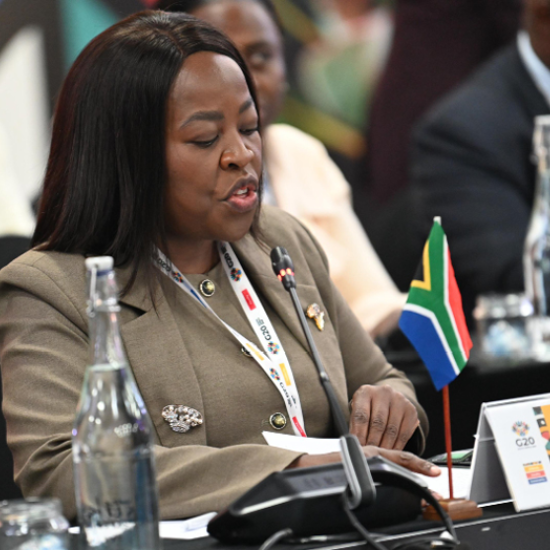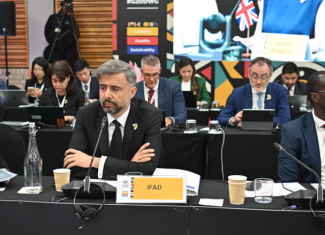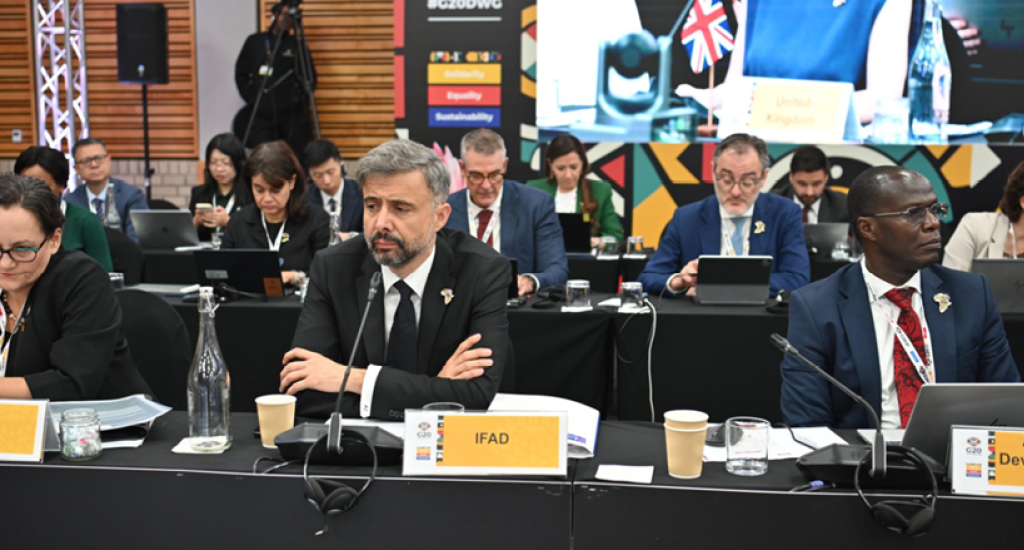Skukuza meeting a springboard for
collective advancement of development

The recent G20 Ministerial Meeting on Development, which took place at the Kruger National Park in Skukuza, Mpumalanga, underscored the promise of collective action to address global challenges and implement measures to accelerate development. It was fitting that Development Ministers of G20 member states, invited states, Heads and representatives of multilateral organisations, the private sector, civil society and other partners met in Mpumalanga, the ‘Place of the Rising Sun’, to usher a new dawn in multilateral cooperation on the advancement of development.
South Africa’s G20 Presidency is taking place at a crucial time in regional and global governance. The advancement of multilateralism, collaboration and partnership in addressing global challenges and accelerating development, is more important now than ever. This follows four other meetings of the Development Working Group (DWG), an important platform within the G20 Sherpa Track, during the course of South Africa’s G20 Presidency. The DWG, which focuses on addressing global development challenges, advanced the overarching theme of South Africa’s G20 Presidency – Solidarity, Equality and Sustainability – and put under the spotlight issues affecting developing and low-income countries.
Mapping the way forward
The discussions and negotiations of the DWG paved the way for the deliberations in the historic Ministerial Meeting, which adopted by consensus the Skukuza Development Ministerial Declaration and the Ministerial Calls to Action – “Towards Inclusive, Resilient and Sustainable Development through Universal Social Protection Systems with special Priority on Social Protection Floors”, and “Towards Voluntary and Non-Binding High-Level Principles for Combatting Illicit Financial Flows”.
Additionally, the Chair’s statement on “Emerging Principles on Fostering International Cooperation for the Protection and Delivery of Global Public Goods”, calls for the establishment of the Ubuntu Commission – a panel of experts to take forward the work of supporting access to global public goods. We made this important intervention because investing in the optimal provision of global public goods will go a long way in shaping a more equitable world.
We have learnt lessons from the COVID-19 pandemic on the importance of dealing differently with global public goods that are non-excludable and non-rival, and have cross-border externalities. It is, therefore, with a deep sense of pride that South Africa has Chaired this progressive forward move in global development cooperation.
Advancing social protection
The Ministerial Calls to Action represent a positive step in the advancement of multilateralism in a time of significant geopolitical shifts. Social protection floors are crucial for the provision of dignity, resilience and opportunity for all, especially the poor, women, youth and vulnerable groups. The importance of social protection systems was further entrenched by the 4th International Financing for Development Conference, which prioritised investment in social protection systems as one of the measures to address inequalities.
The conference also called for countries to integrate financing of social protection systems and floors in line with International Labour Organization recommendations and inter-governmentally agreed standards into country-led plans and strategies. This aligns to South Africa’s advancement of social protection systems as a cornerstone in the fight against poverty and inequality and building an inclusive society.
Addressing illicit financial flows
It was also crucial to mobilise collective action to address illicit financial flows (IFFs), which remain a critical challenge for many countries, especially on the African continent. IFFs lead to a significant loss of resources for the continent, which could be used to build schools, hospitals and infrastructure that is crucial for the development of communities.
As the G20 Ministerial Meeting on Development adopted the Ministerial Call to Action on IFFs, we are reminded of the High-Level Panel on Illicit Financial Flows from Africa, which was commissioned by the African Union and Chaired by former President Thabo Mbeki, which found that large corporations are by far the biggest culprits of illicit flows, followed by organised crime. This 2015 report found that corrupt practices facilitate these outflows and weakened governance capacity on the continent. This meant that governments cannot manage against the resources of large corporations and organised crime, thereby resulting in weakened governments in Africa being vulnerable to state capture.
Strengthening state capacity
The interventions of the G20 Ministerial Meeting on Development advance the collective resolve to implement measures to deal decisively with issues which undermine development and worsen inequality. They emphasise the importance of governments from wealthy, developing and low-income countries, together with multilateral institutions, the private sector, civil society and all partners working together to strengthen state capacity to increase domestic resource mobilisation and financing for development to accelerate development.
Sustainable and inclusive development
The DWG can be proud of the work it has advanced during South Africa’s G20 Presidency, which culminated in the historic Ministerial Meeting on Development at Kruger National Park. Despite the different contexts of our nations, we can be proud that South Africa has brought together various nations and partners to commit to collectively implement measures to achieve sustainable and inclusive development.
Let us celebrate the consensus that informed the Skukuza Ministerial Declaration and Ministerial Calls To Action, and recommit ourselves to continue working collaboratively and leaving no one behind in building a better nation and a better world that accelerates its path to achieve sustainable development. ❖




